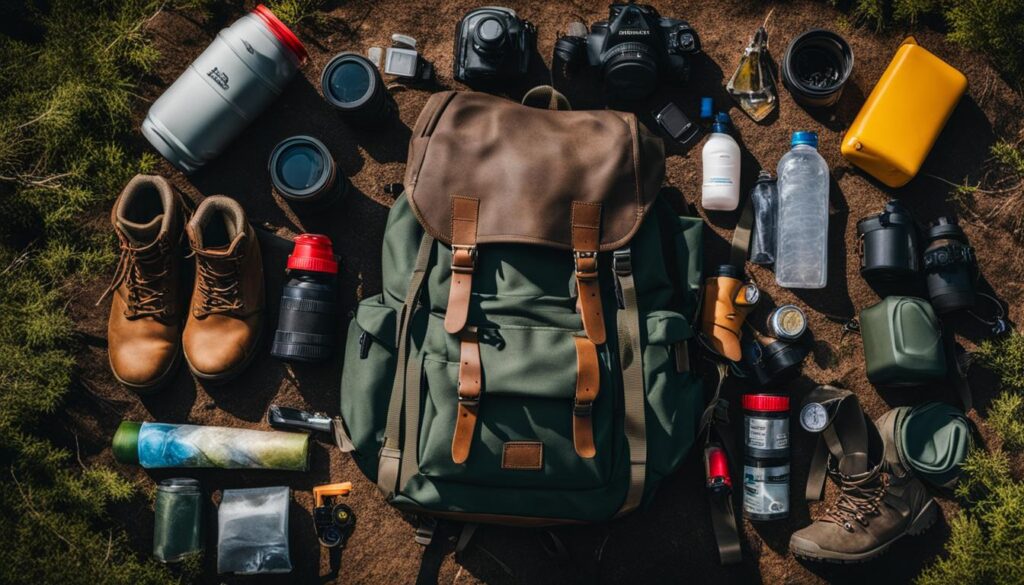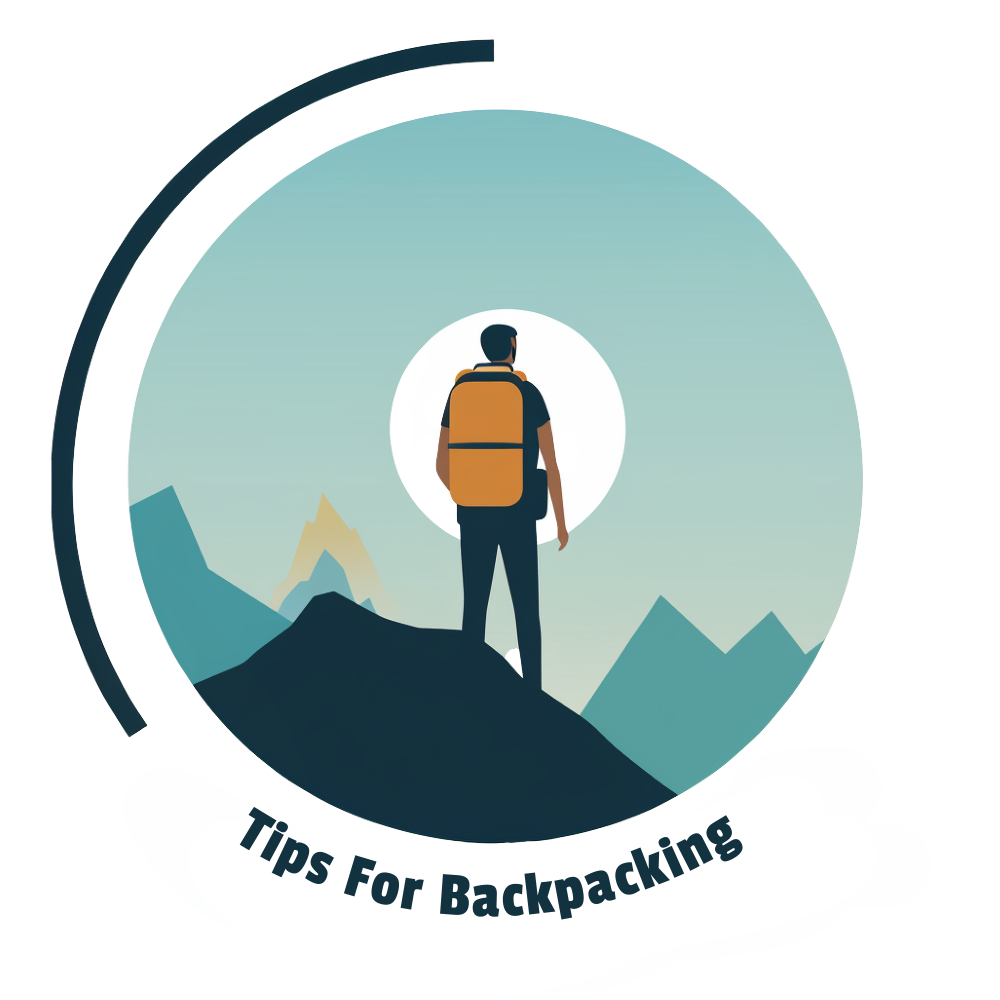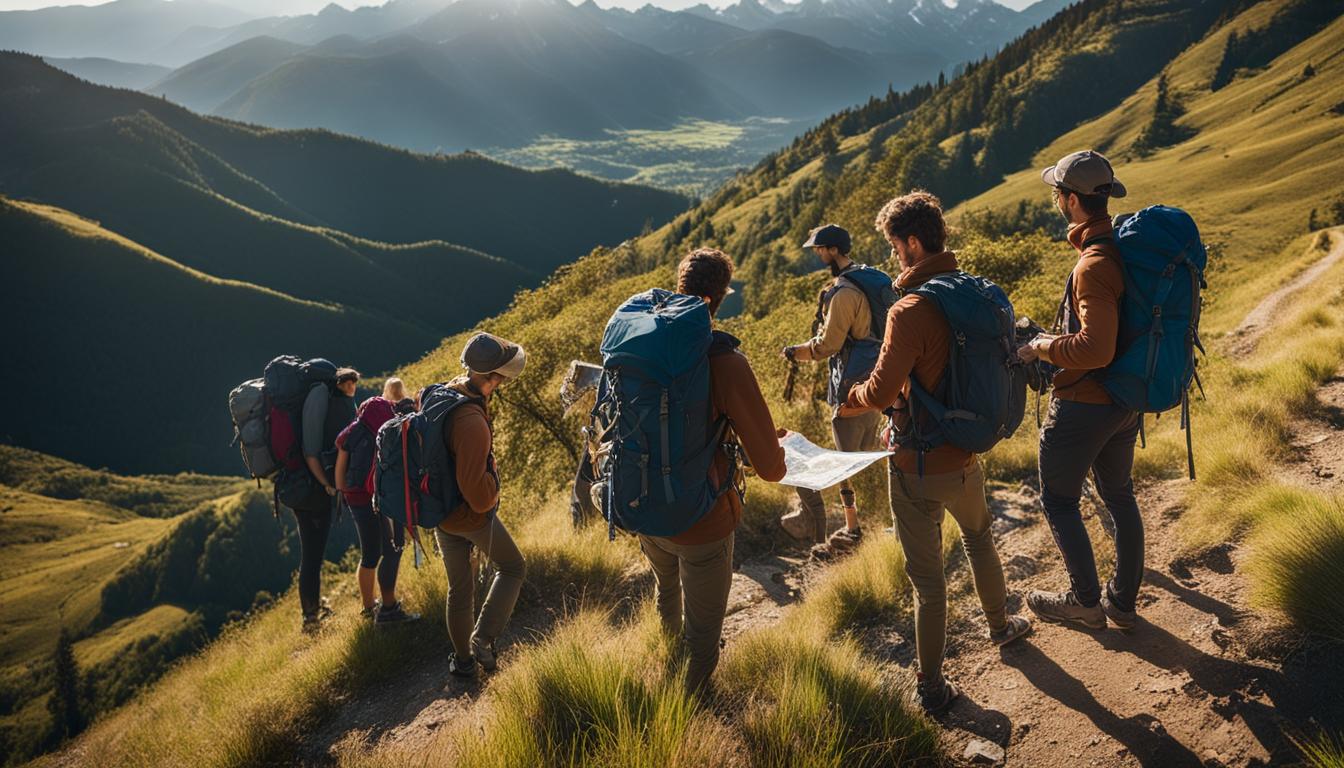Are you ready to embark on your first backpacking adventure? Starting backpacking trips can be an exciting and rewarding experience for beginners. From planning your trip to choosing the right gear, there are a few key things to keep in mind to ensure a successful journey into the great outdoors.
When it comes to choosing a trail for your first backpacking trip, it’s important to consider a few factors. Look for a region that inspires you or has a personal connection. Researching the Indigenous presence and history of the area can add significance to your journey. Utilize apps like Gaia GPS, AllTrails, Hiking Project, and Komoot to discover well-established routes.
As a beginner, it’s okay to choose a trail that is not too rugged or isolated. Having other hikers around can provide comfort and support. Start with a hike that offers amenities such as restrooms, campsites, and water sources nearby. As your experience grows, you can explore trails with more camping opportunities and natural water sources.
Take the time to thoroughly study and understand the details of the trail you choose. Research the campsites, water access points, potential hazards, and possible escape routes. Read trip reports and study topo maps to familiarize yourself with the landscape. Seek advice from experienced backpackers, rangers, or local guides for additional information and insights.
For your first backpacking trip, consider a trail with a mellow elevation gain, preferably less than 1,500 feet of ascent per day. Evaluate the trail’s elevation profile to gauge its difficulty and ensure it aligns with your fitness level and capabilities.
Key Takeaways:
- Choose a trail that inspires you and research its Indigenous presence and history.
- Utilize apps like Gaia GPS, AllTrails, Hiking Project, and Komoot to find established routes.
- Start with a hike that offers amenities and gradually progress to more remote trails.
- Thoroughly study the trail details, including campsites, water access points, and hazards.
- Consider a trail with a mellow elevation gain for your first backpacking trip.
Backpacking Gear for Beginners

When it comes to backpacking, having the right gear is essential for a successful trip. As a beginner, it’s important to start with the basics and gradually build up your gear collection. Here are some essential items to consider:
- Backpack: Choose a backpack that is the right size for your needs, typically between 40 and 75 liters. Look for one that fits you well and has adjustable straps for added comfort.
- Tent: Invest in a lightweight and waterproof tent that can comfortably accommodate the number of people in your group.
- Sleeping Bag and Sleeping Pad: A warm and compact sleeping bag is crucial for a good night’s sleep. Pair it with a sleeping pad to provide insulation and cushioning.
- Water Filter: Ensure access to clean drinking water by carrying a water filter or purifier. There are various options available, so choose one that suits your needs.
- Camping Stove and Cooking Gear: Choose a lightweight and easy-to-use camping stove for cooking meals on the trail. Don’t forget to pack essential cooking gear such as pots, pans, and utensils.
These items form the foundation of your backpacking gear. As you gain more experience, you can add additional gear such as trekking poles, a headlamp, navigation tools, and proper clothing for different weather conditions. Remember to always prioritize comfort, functionality, and durability when selecting gear.
Table: Backpacking Gear Essentials
| Item | Description |
|---|---|
| Backpack | Choose the right size and fit for your needs. Look for adjustable straps and a comfortable design. |
| Tent | Invest in a lightweight and waterproof tent that accommodates your group size. |
| Sleeping Bag | Opt for a warm and compact sleeping bag suitable for the expected temperatures. |
| Sleeping Pad | Provide insulation and cushioning with a sleeping pad for a comfortable night’s sleep. |
| Water Filter | Ensure access to clean drinking water with a reliable water filter or purifier. |
| Camping Stove | Choose a lightweight and easy-to-use camping stove for cooking meals on the trail. |
| Cooking Gear | Pack essential cooking gear such as pots, pans, and utensils for meal preparation. |
What Are Some Must-Have Tips for Beginner Backpackers?
When it comes to backpacking basics for beginners, it’s important to pack light and prioritize essential items like a reliable backpack, sturdy footwear, and appropriate clothing layers. Research your route and know your limits. Stay hydrated and nourished, and always leave no trace while exploring nature. Happy trails!
Tips for a Successful Backpacking Trip
When it comes to backpacking trips, proper planning and preparation can make all the difference. Here are some essential tips to ensure a successful adventure:
1. Plan Your Trip Carefully
Before setting out on your backpacking journey, take the time to plan your trip meticulously. Consider factors such as weather conditions, trail difficulty, and accessibility of water sources. Research the regulations and permits required for the area you plan to visit. Having a well-thought-out plan will help you stay safe and avoid unnecessary challenges along the way.
2. Develop Essential Backpacking Skills
As a beginner backpacker, it’s important to develop essential skills that will enhance your experience. Learn basic navigation techniques, such as reading maps and using a compass. Familiarize yourself with bear safety protocols, including storing food properly and using bear-resistant containers. Embrace Leave No Trace principles to minimize your impact on the environment. These skills will not only keep you safe but also make your backpacking trip more enjoyable.
3. Prepare for Emergencies
While nobody wants to encounter emergencies during a backpacking trip, it’s crucial to be prepared. Take a wilderness first aid course to learn how to handle common injuries and ailments that may arise in the backcountry. Pack a well-stocked first aid kit and know how to use its contents. Additionally, share your itinerary and expected return date with someone you trust. This way, they can alert authorities if you don’t return as planned.
4. Master the Art of Navigation
Proper navigation is vital when backpacking in unfamiliar terrain. Familiarize yourself with the signs, maps, and directions along your chosen route. Use a combination of paper maps, GPS units, and navigation apps to ensure you stay on course. By mastering the art of navigation, you’ll have the confidence to explore new trails and make the most of your backpacking adventure.

